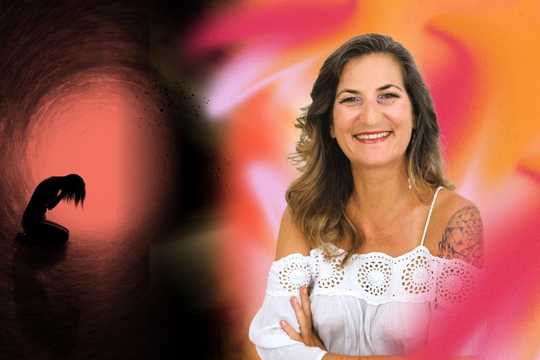The standard treatment options for depression includes medication such as selective serotonin uptake inhibitors (SSRIs), therapy, or a combination of the two. Most people with depression are able to manage their condition using these options.
However, some people experience depression symptoms despite adhering to treatment. This disorder is referred to as “treatment-resistant depression”.
A review that looked at pharmacologic approaches to treatment-resistant depression found that only 30% to 40% of patients experience partial remission in response to adequate therapy and 10% to 15% do not get better at all.
Follow your Curiosity
Sign up to receive our free psychedelic courses, 45 page eBook, and special offers delivered to your inbox.Major depressive disorder has a lifetime prevalence of 15%; it is predicted that by 2030, it will become the leading cause of disability in Western countries.
Therefore, mental health researchers are continually discovering innovative ways to better treat depression. Continue reading to learn about the future of treatment options for depression.
Ketamine
The medical use of ketamine has been around for over 50 years. Currently, in the US, Ketamine is the only psychedelic treatment that is legal in all 50 states – although technically ketamine isn’t a true psychedelic but falls into the drug class known as dissociatives. In recent years, it has been used to provide rapid relief for treatment-resistant depressive symptoms and other mental health conditions.
At low doses, ketamine is administered intravenously and provides an anesthetic effect, pain relief and sedation. At higher doses, it offers a psychedelic effect. On a neurobiological level, ketamine works to help induce neuroplasticity by stimulating new synaptic growth and repairing neural connections that were damaged due to mental health conditions. The rapid effect of ketamine on depressive symptoms has shown to have great potential in suicide prevention.
A recent double-blind, randomized placebo-controlled trial looked at ketamine for the acute treatment of severe suicidal ideation. The intervention group received two 40-minute intravenous infusions of ketamine and the control group received saline.
The results showed there were significantly more participants in the ketamine group who reached full remission of suicidal ideation at day three than in the placebo group.
The study concluded that ketamine is fast-acting, safe in the short term, and has persistent benefits for acute care in suicidal patients.
Esketamine
In 2020, the FDA approved a nasal spray called esketamine to help those with treatment-resistant depression. It is given under the supervision of a doctor or health care provider due to safety reasons. Esketamine elevates mood by increasing the activity of glutamate in the brain to trigger new connections in the brain.
Psilocybin
Psilocybin-assisted therapy was given Breakthrough Therapy Designation by the FDA in 2019. This step means that psilocybin has shown preliminary results that provide a significant improvement in the current treatment of serious illness; hence, the research and development of the drug can be reviewed and approved on a shorter timeline.
A randomized clinical controlled trial published in JAMA Psychiatry looked at the effects of psilocybin-assisted therapy on major depressive disorder. Participants were randomized to the treatment group or a waiting list that served as the control group.
The treatment group was provided with two psilocybin sessions. Depression severity was measured at baseline and at five and eight weeks after treatment. The results showed that 54% of the participants in the treatment group did not experience any depression symptoms four weeks after receiving psilocybin. The study concluded that psilocybin is effective in the treatment of major depressive disorder.
The COMPASS phase IIb clinical trial is conducting the most recent research on the potential for psilocybin as one of the treatment options for depression. Click here to read more about the structure of the COMPASS study, outcomes and next steps.
MDMA
The FDA granted MDMA breakthrough therapy status and studies have shown it has been helpful for those with PTSD and other mental health conditions.
MDMA works by stimulating the brain to release neurotransmitters including serotonin, dopamine and norepinephrine and hormones including oxytocin, vasopressin, cortisol and prolactin. Upon taking it, the user can experience social openness, a sense of oneness and increased empathy.
A randomized, double-blind, placebo-controlled phase III study that looked at MDMA-assisted therapy for severe PTSD was published in 2021. PTSD symptoms were measured using the Clinician-Administered PTSD Scale for DSM-5 and functional impairment was measured with the Sheehan Disability Scale. Results showed the group that received MDMA had a significant reduction in PTSD symptoms and functional impairment compared to the placebo group.
The researchers explained that MDMA-assisted psychotherapy may help people with PTSD calm their fear response by improving the way they recall a traumatic memory. In turn, it allows the person to stay with these harmful memories safely in therapy by preventing an overwhelming emotional response.
Brexanolone
The FDA approved brexanolone, the first drug to treat postpartum depression in 2019. Scientists don’t completely understand how it works; however, what we do understand is that it is an aqueous formulation of allopregnanolone which is a metabolite of progesterone. It helps regulate mood by increasing the adaptation of GABA receptors.
Clinical studies show that the most common side effects of brexanolone were headaches, dizziness, sedation/somnolence, xerostomia, loss of consciousness, and hot flushes.
Stanford Accelerated Intelligent Neuromodulation Therapy (SAINT)
Transcranial magnetic stimulation (TMS) therapy works to treat depression by changing the way different parts of the brain communicate with each other and altering the areas affected by the condition. This type of depression treatment has been approved by the FDA since 2008.
However, it takes a long time for this treatment to be effective. The standard protocol for TMS therapy is one session per day for six weeks. The SAINT protocol is an aggressive and expedited approach where a person receives TMS therapy 10 times per day for 5 days.
Using FMRI scans, the researchers were able to target the brain appropriately with TMS. In the study, participants with treatment-resistant depression received the protocol and neuropsychological testing was completed at baseline and after the treatment.
The results showed that 90.5% of the subjects met remission criteria, defined as a score <11 on the Montgomery-Åsberg Depression Rating Scale. It concluded that the SAINT protocol is safe and well-tolerated but future double-blind controlled studies need to be conducted to verify results.
The future of treating depression is promising. With the renewed therapeutic exploration of psychedelics and hundreds of clinical trials underway, state legislators are also stepping up and fighting for changes to access these powerful healing modalities. As the global mental health crisis rages on, research teams, commercial interests, and community groups are rallying around the promising treatment options for depression as there’s plenty of work to be done to help those who do not respond to standard treatments.
Learn more about psychedelic-assisted therapy and/or connect with a specialized provider through our Psychedelic Support directory.
References
- Azhar, Y., & Din, A. U. (2020). Brexanolone. PubMed; StatPearls Publishing. https://www.ncbi.nlm.nih.gov/books/NBK541054/
- Cole, E. J., Stimpson, K. H., Bentzley, B. S., Gulser, M., Cherian, K., Tischler, C., Nejad, R., Pankow, H., Choi, E., Aaron, H., Espil, F. M., Pannu, J., Xiao, X., Duvio, D., Solvason, H. B., Hawkins, J., Guerra, A., Jo, B., Raj, K. S., & Phillips, A. L. (2020). Stanford Accelerated Intelligent Neuromodulation Therapy for Treatment-Resistant Depression. American Journal of Psychiatry, 177(8), 716–726. https://doi.org/10.1176/appi.ajp.2019.19070720
- Davis, A. K., Barrett, F. S., May, D. G., Cosimano, M. P., Sepeda, N. D., Johnson, M. W., Finan, P. H., & Griffiths, R. R. (2020). Effects of Psilocybin-Assisted Therapy on Major Depressive Disorder. JAMA Psychiatry, 78(5). https://doi.org/10.1001/jamapsychiatry.2020.3285
- Gastaldon, C., Papola, D., Ostuzzi, G., & Barbui, C. (2019). Esketamine for treatment resistant depression: a trick of smoke and mirrors? Epidemiology and Psychiatric Sciences, 29. https://doi.org/10.1017/s2045796019000751
- Mitchell, J. M., Bogenschutz, M., Lilienstein, A., Harrison, C., Kleiman, S., Parker-Guilbert, K., Ot’alora G., M., Garas, W., Paleos, C., Gorman, I., Nicholas, C., Mithoefer, M., Carlin, S., Poulter, B., Mithoefer, A., Quevedo, S., Wells, G., Klaire, S. S., van der Kolk, B., & Tzarfaty, K. (2021). MDMA-assisted therapy for severe PTSD: a randomized, double-blind, placebo-controlled phase 3 study. Nature Medicine, 27(6), 1025–1033. https://doi.org/10.1038/s41591-021-01336-3
- Tundo, A., Filippis, R. de, & Proietti, L. (2015). Pharmacologic approaches to treatment resistant depression: Evidences and personal experience. World Journal of Psychiatry, 5(3), 330. https://doi.org/10.5498/wjp.v5.i3.330
- U.S. Food and Drug Administration. Breakthrough therapy.






